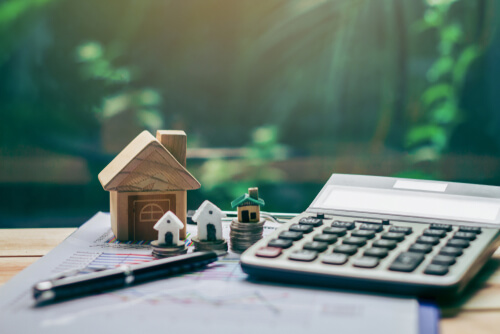It’s a fairly common occurrence, especially in slow economies, for a family overwhelmed with bills to take out a second mortgage on their home. But how good an idea is this?
18 February 2021 · Isabelle Coetzee

It’s a fairly common occurrence, especially in slow economies, for a family overwhelmed with bills to take out a second mortgage on their home.
But how good an idea is this? We have a look at what a mortgage is, how you can take one out, and whether taking out a second mortgage is the right thing to do.
Tip: To take out a mortgage you first need a home. Find out whether you qualify for a home loan here.
What is a mortgage?
According to Simon Stockley, co-founder and former chief executive of SA Home Loans, a mortgage is essentially a loan taken out to finance or refinance the purchase of a property.
“The loan is secured against the value of your home, until you have repaid the loan in full. If you don’t maintain the payments on the loan, the lender may repossess the property and may sue you personally for any additional funds that may be owing,” says Stockley.
He explains that mortgage loans are typically 20 years in length. But, in an effort to promote wider affordability and accessibility, lenders have been offering longer term loans – up to 30 years.
“You should always reserve the right to repay your loan in a shorter period than the one set out in the loan agreement. You should not be locked into a twenty-year term, should you find yourself with excess liquidity at any stage during the mortgage period."
According to Carl Coetzee, CEO of BetterBond, the first few bond repayments will cover the interest and fees incurred from the purchase of a property. Later instalments will go towards paying off the capital amount of the loan.
READ MORE: Why do home loans abroad have lower interest rates than in South Africa?
Bond originator versus a bank
Stockley says that when you decide to take out a mortgage, you need to decide who is going to guide you through the application processes. Here you have two choices.
“Either you use the services of a bond originator or bond broker, or you deal with the lending institution directly. The choice is a personal matter,” says Stockley.
He recommends that you guide your decision by the 'relationship rule'. This states that, if you have a relationship with your bank, or you have access to a bank manager or relationship manager, then you should probably deal directly with your bank or lender. However, he says that if you don't have access to a dedicated person you can talk to directly, then you are better off using the services of an originator.
“First-time buyers should probably always engage an originator to guide them through the application process. Always establish what charges, if any, are being priced into the loan by the originator, prior to engaging them,” says Stockley.
Whichever route you choose, Stockley recommends the cardinal rule of shopping around. He says that the mortgage market these days is incredibly competitive, and you are under no obligation to accept the first offer you receive.
“An absolute requirement for a mortgage is a clean credit record. If your credit history is at all impaired you should make efforts to rehabilitate it before approaching a lender for finance. A decline decision, once made, will be harder to reverse if confirmed in writing by a lender,” says Stockley.
Is it a good idea to take out a mortgage?
“With the prime lending rate at 7%, it’s now cheaper to apply for a bond than it is to pay rent on the same property. This is the lowest the interest rate has been in 55 years,” says Coetzee.
He explains that buyers with the financial means to keep pace with their bond repayments would do well to make the most of the current lending environment, at a time when they can afford 30% more than they could this time last year.
“After negotiating the best possible rate for your mortgage loan, it is important to pay off the loan as quickly as possible. Pay any spare cash that you have into the loan, over and above the scheduled monthly instalment,” advises Stockley.
Have a look at our home loan calculator to see what you can expect in your personal home loan.
Free tool

info@justmoney.co.za
4th Floor, Mutual Park, Jan Smuts Drive,
Pinelands, Cape Town, 7405
© Copyright 2009 - 2025 · Powered by NCRCB29
Terms & Conditions
·
Privacy Policy
·
PAIA Manual
View your total debt balance and accounts, get a free debt assessment, apply for a personal loan, and receive unlimited access to a coach – all for FREE with JustMoney.